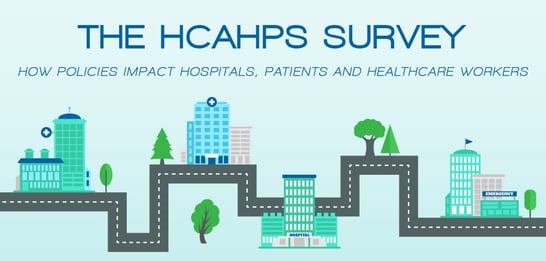 In 2012, the Affordable Care Act introduced a new policy that would help calculate Medicare reimbursement and bonuses to healthcare facilities. More than $1 billion is withheld from hospitals each year, and only facilities that maintain basic care standards and obtain high patient satisfaction survey scores earn money back. The Atlantic adds that top performers collect bonus money from the pool.
In 2012, the Affordable Care Act introduced a new policy that would help calculate Medicare reimbursement and bonuses to healthcare facilities. More than $1 billion is withheld from hospitals each year, and only facilities that maintain basic care standards and obtain high patient satisfaction survey scores earn money back. The Atlantic adds that top performers collect bonus money from the pool.
The policy places a lot of weight on patient satisfaction scores — 30 percent of hospitals’ Medicare reimbursement rides on these subjective assessments. As a result, there have already been unfortunate consequences for some hospitals, patients and healthcare workers. But with the right approach, healthcare professionals can take steps to minimize the negative effects and concentrate on providing quality care to patients.
What Is the HCAHPS?
Basics the HCAHPS is a 32-question survey from the Centers for Medicare and Medicaid Services (CMS) that measures patients’ perceptions of their hospital stay. The survey is given to patients who receive medical, surgical or maternity care services 48 hours to six weeks after discharge. The survey focuses on nine key topics:
* Communication with doctors
* Communication with nurses
* Responsiveness of hospital staff
* Pain management
* Communication about medicines
* Discharge information
* Cleanliness of the hospital environment
* Quietness of the hospital environment
* Transition of care In 2015, CMS unveiled a new five-star rating system for consumers to compare hospitals online. CMS uses data from HCAHPS surveys to determine a hospital’s star rating, which is updated quarterly. Based on analysis from Modern Healthcare, only 251 of more than 3,500 U.S. hospitals received the highest ranking of five stars in April.
Financial Consequences of Survey Scores
The Affordable Care Act mandated that 1 percent of Medicare inpatient payments be withheld from hospitals — approximately $850 million — beginning in fiscal year 2013. For fiscal year 2015, the withholding increased to 1.5 percent. And in fiscal year 2017, The Advisory Board Company explains, this amount maxes at 2 percent.
Hospitals can lose or earn back the money that is withheld, and a bonus is possible for top performers. For fiscal year 2015, hospitals are rewarded or penalized based on performance in these four domains:
* Clinical process of care (20 percent)
* Patient experience of care (30 percent)
* Outcomes of care (30 percent)
* Efficiency (20 percent)
“Patient experience of care” is where HCAHPS scores come into play. The Advisory Board Company states that, by design, approximately half of hospitals receive the financial penalty in a given year. In future years, it will become more difficult for hospitals to do well under this payment model and rise above the break-even mark.
The Impact of the HCAHPS
Hospitals
The HCAHPS puts financial pressure on hospitals. If they are unable to score in the top half of all facilities, they lose income. And as a result, this pressure can lead to solutions that may not be best for healthcare environments.
Research identifies factors unrelated to quality of care as being more important to patients. A study in ScienceDaily found some of these factors, such as noise in the hospital room or the responsiveness of a nurse, often characterize large, busy urban hospitals that have high caseloads and better medical outcomes. “Based on this study, the hospitals that have the best survival outcomes are not doing the best job of satisfying patients,” said Robert D. Lieberthal, Ph.D., the study’s lead author.
This has led to hotel-like amenities at hospitals seeking to improve patient satisfaction scores on the HCAHPS. Elisabeth Rosenthal of The New York Times describes a $63 million community hospital outfitted with a stone fireplace and a waterfall in the lobby. Private rooms for patients include couches, flat-screen televisions and picturesque views. While there are some medical arguments for the trend, such as lower infection rates and added rest, Rosenthal argues that “the main reason for the largess is marketing.” Patient satisfaction becomes focused on amenities rather than quality of care, and the added cost is felt on a U.S. healthcare bill that exceeds $3 trillion.
Patients
Patient comments on the HCAHPS survey reveal negative perceptions of medical care. The Atlantic documents complaints that range from not enough pastrami on a patient’s sandwich (after undergoing quadruple-bypass surgery) to a hospital that lacked Splenda. Another patient complained about a roommate that was very noisy. These types of comments reinforce the fact that patients are often more concerned about comfort than they are concerned about quality of care. As oncology nurse Theresa Brown writes in The New York Times, “Focusing on what patients want — a certain test, a specific drug — may mean they get less of what they actually need. In other words, evaluating hospital care in terms of its ability to offer positive experiences could easily put pressure on the system to do things it can’t, at the expense of what it should.” If hospitals focus too heavily on what patients want, the patients could suffer in terms of quality care.
Healthcare Professionals
To perform well on the HCAHPS, doctors, nurses and other hospital staff must balance what is medically necessary for patients with what a patient likes or dislikes. In some situations, patients’ comfort and happiness are given too much weight.
The Atlantic points out that in an effort to avoid upsetting patients, some doctors who are reimbursed based on these scores hesitate to refuse requested treatments or bring up difficult discussions about substance abuse, smoking or mental health issues. Medical Scribe Journal adds that this trend is also true for physicians abiding by patients’ requests for unnecessary tests. More than half of physicians in one survey admitted to ordering a test that wasn’t needed. And physicians who inform patients of bad news may not get high marks on patient satisfaction surveys.
The pressure can also come from the hospital. The Atlantic mentions that because the HCAHPS involves nurses on almost every question, some hospitals now require nurses to undergo unnecessary nonmedical training that can involve scripts designed to score better on patient satisfaction surveys. The magazine points to hospital job postings for nurses that list “good customer-service skills” as the initial qualification. Some staff members are explicitly evaluated in terms of customer satisfaction, and patient satisfaction scores can be a factor in pay or annual bonuses for doctors and nurses.
Maintaining Quality Care and Patient Satisfaction
In many cases, healthcare professionals are able to treat patients while ensuring that they are as comfortable as possible. By having the right priorities and maintaining strong communication with patients, providers can do everything possible to meet all of their patients’ needs. The online B.S. Nursing: RN-BS degree program from Rivier University can help nurses keep a proper perspective on both patient satisfaction and patient treatment. It is designed to allow nurses to pursue leadership positions and increase the quality of care provided in any medical environment. The program takes place in a flexible online learning environment that allows students to maintain their work and personal schedule.


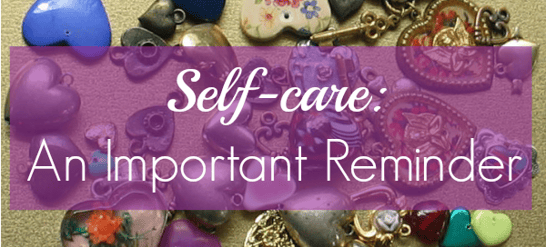 Self care is one of the most important facets of being a Nurse. On a daily basis, you encourage others to focus on their health and reduce stress. However, it’s necessary that you incorporate relaxation and practices that are beneficial to your health mainly for self care reasons, but also so you can be healthy for your patients. Nurses spend so much time caring for others that self care may not be at the forefront of your thoughts, but that doesn’t change how important it is.
Self care is one of the most important facets of being a Nurse. On a daily basis, you encourage others to focus on their health and reduce stress. However, it’s necessary that you incorporate relaxation and practices that are beneficial to your health mainly for self care reasons, but also so you can be healthy for your patients. Nurses spend so much time caring for others that self care may not be at the forefront of your thoughts, but that doesn’t change how important it is.
 Nursing is a challenging and rewarding occupation, requiring long hours and a dedicated focus while offering people who answer the call the opportunity to make a real difference in patients' lives. While many Nursing careers are found inside hospital walls, there is a wide range of settings that a Nurse can choose as a workplace.
Nursing is a challenging and rewarding occupation, requiring long hours and a dedicated focus while offering people who answer the call the opportunity to make a real difference in patients' lives. While many Nursing careers are found inside hospital walls, there is a wide range of settings that a Nurse can choose as a workplace.
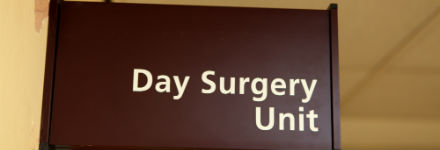 The proliferation of same-day surgery has changed health care in a dramatic way over the past two decades. Not only can same-day surgeries alleviate overcrowding in hospitals, they can also decrease a patient’s health care costs, decrease rehab time, and diminish the financial loss of taking time off from work to have surgery performed.
The proliferation of same-day surgery has changed health care in a dramatic way over the past two decades. Not only can same-day surgeries alleviate overcrowding in hospitals, they can also decrease a patient’s health care costs, decrease rehab time, and diminish the financial loss of taking time off from work to have surgery performed.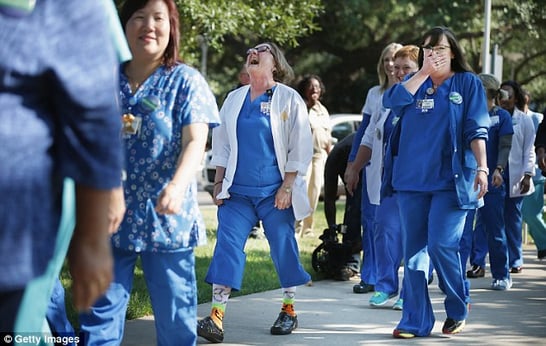 The Nursing profession is notoriously high-pressure. Many patients that Nurses encounter are in a grave state of need, and Nurses may not always meet their patients' needs, despite their best efforts. With so many individuals needing a coping mechanism, it's no wonder that many people turn to the power of humor and laughter.
The Nursing profession is notoriously high-pressure. Many patients that Nurses encounter are in a grave state of need, and Nurses may not always meet their patients' needs, despite their best efforts. With so many individuals needing a coping mechanism, it's no wonder that many people turn to the power of humor and laughter.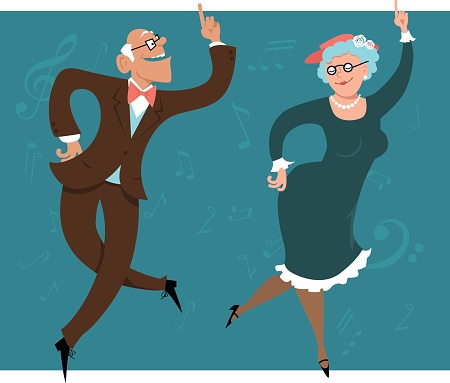 As the growing baby boomer generation begins their retirement, so too begins a wealth of golden opportunities for investors and job seekers in the senior care industry. Of particularly exciting growth are the providers of in-home health care services. This includes people who specialize in everything ranging from medical assistance to basic health assistance like bathing and grooming, keeping up with housekeeping, and meal preparation.
As the growing baby boomer generation begins their retirement, so too begins a wealth of golden opportunities for investors and job seekers in the senior care industry. Of particularly exciting growth are the providers of in-home health care services. This includes people who specialize in everything ranging from medical assistance to basic health assistance like bathing and grooming, keeping up with housekeeping, and meal preparation.
 America’s top companies are hiring the best, most qualified candidates, by widening their recruitment efforts and increasingly seeking diverse talent. Diverse workplaces include employees from different races, ethnicities, gender, education, religions, sexual orientations, socioeconomic backgrounds, geographic locations, and other varying conditions.
America’s top companies are hiring the best, most qualified candidates, by widening their recruitment efforts and increasingly seeking diverse talent. Diverse workplaces include employees from different races, ethnicities, gender, education, religions, sexual orientations, socioeconomic backgrounds, geographic locations, and other varying conditions. 

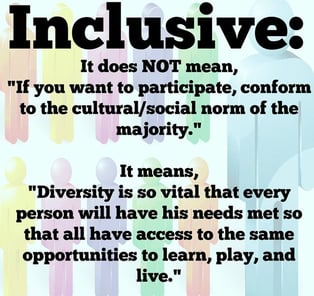 Exclusion on the other hand separates, it inhibits, limits, shuts down, sometimes oppresses, even suffocates. To be excluded is one of the top five fears that we as humans have. It instills fear by its very nature and can create tremendous anxiety and can lead to conflict. Exclusion is not just harmful to the person, it’s harmful to relationships, families, profit and non-profit organizations and societies. We lose out on who that person is and what that person who is different from us (be it their perspective, their idea, their culture, their age) has to offer. We lose out on what we can learn and on what they/we together can contribute, build, inspire and live.
Exclusion on the other hand separates, it inhibits, limits, shuts down, sometimes oppresses, even suffocates. To be excluded is one of the top five fears that we as humans have. It instills fear by its very nature and can create tremendous anxiety and can lead to conflict. Exclusion is not just harmful to the person, it’s harmful to relationships, families, profit and non-profit organizations and societies. We lose out on who that person is and what that person who is different from us (be it their perspective, their idea, their culture, their age) has to offer. We lose out on what we can learn and on what they/we together can contribute, build, inspire and live. Strong management is necessary for all work environments, especially those that involve quick decision-making and high-pressure situations. Nursing is a career that, undoubtedly, fits into this category. Quality Nurse Management is vital when creating successful Nursing teams. Nurse Managers have an effect on how their employees relate to each other and their patients. Regardless of the hospital unit the manager works in, he or she must lead with a firm yet compassionate hand, revealing what they expect from the team. What is the importance of strong Nurse Management?
Strong management is necessary for all work environments, especially those that involve quick decision-making and high-pressure situations. Nursing is a career that, undoubtedly, fits into this category. Quality Nurse Management is vital when creating successful Nursing teams. Nurse Managers have an effect on how their employees relate to each other and their patients. Regardless of the hospital unit the manager works in, he or she must lead with a firm yet compassionate hand, revealing what they expect from the team. What is the importance of strong Nurse Management?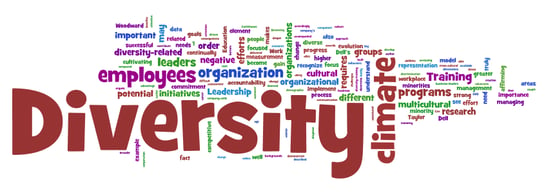 The profession of Nursing is engaged in a consistent conversation about the state of Diversity in Nursing. The way these figures are tallied are by comparing the percentage of individuals of various ethnic or cultural backgrounds in the general population to the relative group percentages in the field of Nursing. Many professional Nursing publications have been observant that Diversity in the Nursing field has improved, but there is still much additional room for continued improvement.
The profession of Nursing is engaged in a consistent conversation about the state of Diversity in Nursing. The way these figures are tallied are by comparing the percentage of individuals of various ethnic or cultural backgrounds in the general population to the relative group percentages in the field of Nursing. Many professional Nursing publications have been observant that Diversity in the Nursing field has improved, but there is still much additional room for continued improvement.